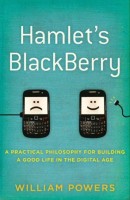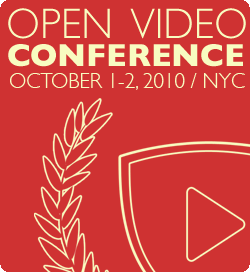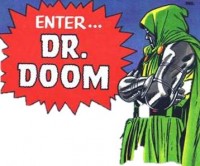Stung by criticism of its site as the “worst in government”—that mighta been Jerry Brito talking—the FCC has rolled out a new set of sites under a “Reboot” brand.
When I first saw the presentation on it at today’s Gov 2.0 Summit, I thought that the FCC has merely redone its web site, but it appears to be releasing data that can be re-purposed in any number of ways for true public oversight of the agency.
Developers, check out FCC.gov/developer and let us know what you think of it.
 On the podcast this week, Timothy B. Lee, PhD candidate in computer science at Princeton University and fellow at Princeton’s Center for Information Technology Policy, discusses a variety of issues. Lee parses new net neutrality nuances, addressing recent debate over prioritization of internet services. He also discusses wireless spectrum policy, comparing and contrasting a strict property rights model to a commons one. Lee concludes by weighing in on potential software patent reform, referencing Paul Allen’s wide-ranging patent-infringement lawsuits and the Oracle-Google tiff over Java patents.
On the podcast this week, Timothy B. Lee, PhD candidate in computer science at Princeton University and fellow at Princeton’s Center for Information Technology Policy, discusses a variety of issues. Lee parses new net neutrality nuances, addressing recent debate over prioritization of internet services. He also discusses wireless spectrum policy, comparing and contrasting a strict property rights model to a commons one. Lee concludes by weighing in on potential software patent reform, referencing Paul Allen’s wide-ranging patent-infringement lawsuits and the Oracle-Google tiff over Java patents.
Related Readings
Do check out the interview, and consider subscribing to the show on iTunes. Past guests have included Clay Shirky on cognitive surplus, Nick Carr on what the internet is doing to our brains, Gina Trapani and Anil Dash on crowdsourcing, James Grimmelman on online harassment and the Google Books case, Michael Geist on ACTA, Tom Hazlett on spectrum reform, and Tyler Cowen on just about everything.
So what are you waiting for? Subscribe!
 Information overload is a hot topic these days. I’ve really enjoyed recent essays by Aaron Saenz (“Are We Too Plugged In? Distracted vs. Enhanced Minds”), Michael Sacasas (“Technology Sabbaths and Other Strategies for the Digitized World“), and Peggy Noonan (“Information Overload is Nothing New“) discussing this concern in a thoughtful way. Thoughtful discussion about this issue is sometimes hard to find because, as I’ve noted here before, information overload is a subject that bitterly divides Internet optimists and pessimists. The pessimists tend to overplay the issue and discuss it in apocalyptic terms. The optimists, by contrast, often dismiss the concern out of hand. Certainly there must be some reasonable middle ground on this issue, no?
Information overload is a hot topic these days. I’ve really enjoyed recent essays by Aaron Saenz (“Are We Too Plugged In? Distracted vs. Enhanced Minds”), Michael Sacasas (“Technology Sabbaths and Other Strategies for the Digitized World“), and Peggy Noonan (“Information Overload is Nothing New“) discussing this concern in a thoughtful way. Thoughtful discussion about this issue is sometimes hard to find because, as I’ve noted here before, information overload is a subject that bitterly divides Internet optimists and pessimists. The pessimists tend to overplay the issue and discuss it in apocalyptic terms. The optimists, by contrast, often dismiss the concern out of hand. Certainly there must be some reasonable middle ground on this issue, no?
There is, and some of it can be found in a fine new book, Hamlet’s BlackBerry: A Practical Philosophy for Building a Good Life in the Digital Age, by William Powers. Powers, a former staff writer for the Washington Post, is a gifted storyteller and his walk though the history of philosophy and technology makes this slender volume an enjoyable, quick read. He begins by reminding us that:
whenever new devices have emerged, they’ve presented the kinds of challenges we face today — busyness, information overload, that sense of life being out of control. These challenges were as real two millennia ago as they are today, and throughout history, people have been grappling with them and looking for creative ways to manage life in the crowd. (p. 5)
His key insight is that humans can adapt to new technology, but it takes time, patience, humility, and a little effort. “The key is to strike a balance,” he says, between “the call of the crowd” and the “need for time and space apart” from it. (p. 4) The problem we face today is that all the pressure is on us to be what he calls “Digital Maximalists.” That is, many of us are increasingly out to maximize the time spent in front of various digital “screens” whether we have made the determination that is really in our best interest or not. It has just gradually happened, Powers argues, because “The goal is no longer to be ‘in touch’ but to erase the possibility of ever being out of touch.” (p. 15)
Continue reading →

Chalk up another victim to unwarranted political intimidation by state attorneys general. On Friday evening, Craigslist, which has long been under intense pressure to crack down on sex crimes, replaced its adult services section in the U.S. with a black censor bar. This move comes on the heels of a scathing letter sent to Craigslist by seventeen state AGs insinuating that Craigslist is culpable for the “victimization of children.” While the state attorneys general are likely celebrating victory this holiday weekend, all they’ve really done is to stifle free speech online and complicate efforts by law enforcement authorities to go after the real bad guys — you know, the ones who are forcing kids into sex slavery.
This isn’t the first time states have publicly attacked Craigslist for its involvement in sex crimes. Various AGs been trying to intimidate the site into eliminating avenues of adult content for years, as Alex Harris and Jim Harper have chronicled on these pages. In response to state AGs’ relentless saber-rattling, Craigslist made several major changes last year aimed at curbing illegal postings. The site shut down its notorious “erotic services” section and began charging $10 for every posting made to the adult services section. Craigslist even began manually screening all posts submitted to the adult services section. Since May 2009, over 700,000 postings have been rejected.
Apparently none of these concessions were enough for state AGs, always eager to score political points. Despite the safeguards Craigslist implemented last year, users continued to use the site in the commission of sex crimes. This is hardly surprising; given the sheer volume of user submissions and the increasingly complex measures taken by criminals to obfuscate their unlawful solicitations, some illegal postings are bound to circumvent any filtering regime. Now that Craigslist has censored its adult services section, former users of the section will invariably flock to other sites, as has happened every single time a major Bittorrent site has been taken offline or crippled by litigation. Craigslist is just one of many, many websites on the Internet that’s frequented by criminals, after all. From popular sites like Google and Yahoo! to small blogs that accept user comments, nearly any site that allows user submissions can be used to break the law.
Such websites generally aren’t legally liable for crimes committed by their users, as courts across the country have held time and time again (1,2,3,4). That’s because when Congress overhauled America’s telecom laws in 1996, it enacted the Communications Decency Act, which grants “providers” of “interactive computer service” immunity from state criminal prosecution for illegal content posted by users. Thus, while prosecutors can and do pursue criminal charges against individuals who post illegal content to Craigslist, they can’t go after Craigslist itself, as long as the site complies with enforceable governmental requests and promptly removes content it knows to be illegal.
Continue reading →
The Federal Trade Commission is looking for a computer scientist.
Have you always aspired to work at a “duty location”?
Do you think of yourself as a GS-1550-13/14 kinda guy or gal?
Then this is the gig for YOU!
 I’ll be there, speaking on a privacy-focused panel entitled: “We Know What You Watch.”
I’ll be there, speaking on a privacy-focused panel entitled: “We Know What You Watch.”
Spooky!
There’s an interesting agenda and, as conferences go, this one seems to be pretty well organized. For example, they have a page of badges they encourage participants to use in promotions like this one. (What do you think of the one I selected?)
And they suggest the Twitter hashtags #openvideo and #ovc10.
Once again, New York TLFers, that’s the Open Video Conference, Oct. 1-2 at the Fashion Institute of Technology.
To hails of derision in some quarters—I’m looking at you, Adam—I have talked about how social media will occupy some of the space being ceded by traditional news reporting, which is struggling to find a business model. Perhaps with validation from an official, vetted, professional, dead-tree news source, it will seem less ridiculous to talk about news reporting being generated spontaneously by people “on the scene” or with the greatest knowledge of facts and conditions in a particular area.
Think of the mental habit that has us calling police and fire personnel “first responders.” They are almost always, in fact, second responders, with first response undertaken by average citizens, who often do a pretty good job of it. Think of the true first responders to recent attempted bombings on transatlantic flights: ordinary citizens who thwarted the underwear and shoe bombers. (I risk painting too heroic a picture . . . .)
Newspaper reporters and photographers are intellectual second responders, who come in after the fact, as generalists, to summarize events and trends for us. Yet these are who we look to as authorities on what happened, and how to think about it? That doesn’t seem to make sense if there are other options for being informed. And now there are.
I’ll take a cue from Adam’s good work in debunking the Internet pessimists who argue that “closed” access and technology models are strangling the open/’generative’ Internet: There’s plenty of room for both—both traditional journalism, as it finds its new niche, and reporting by ordinary people who are on the scene and who have superior knowledge in a particular domain.
I suspect that we’ll find better media and filters than Twitter’s firehose of info-pellets by which to learn about things like the hostage-taking in the D.C. area. There may even be a business model in it. Go to it, technology and markets!
 On the podcast this week, Danny Sullivan, an expert on the internet search industry and editor-in-chief of Search Engine Land, discusses search neutrality. He explains the concept of search neutrality and discusses a recent New York Times editorial suggesting Google’s search algorithm should be subject to government oversight or regulation. Sullivan points out flaws inherent to the notion of search neutrality and discusses competition in the search engine industry. He also imagines what it might take to topple Google from its perch atop internet search.
On the podcast this week, Danny Sullivan, an expert on the internet search industry and editor-in-chief of Search Engine Land, discusses search neutrality. He explains the concept of search neutrality and discusses a recent New York Times editorial suggesting Google’s search algorithm should be subject to government oversight or regulation. Sullivan points out flaws inherent to the notion of search neutrality and discusses competition in the search engine industry. He also imagines what it might take to topple Google from its perch atop internet search.
Related Readings
Do check out the interview, and consider subscribing to the show on iTunes. Past guests have included Clay Shirky on cognitive surplus, Nick Carr on what the internet is doing to our brains, Gina Trapani and Anil Dash on crowdsourcing, James Grimmelman on online harassment and the Google Books case, Michael Geist on ACTA, Tom Hazlett on spectrum reform, and Tyler Cowen on just about everything.
So what are you waiting for? Subscribe!
 How many times can FCC Commissioner Michael Copps declare the Internet dead? Like a fire-and-brimstone preacher bombastically bellowing sermons warning of the impending End Times, Commissioner Copps has made a hobby out of declaring the Internet dead and buried unless drastic steps are taken right now to save cyberspace! The problem is, he’s being saying this for the past decade and yet, despite generally laissez-faire policy in this arena, the Internet is still very much alive and well.
How many times can FCC Commissioner Michael Copps declare the Internet dead? Like a fire-and-brimstone preacher bombastically bellowing sermons warning of the impending End Times, Commissioner Copps has made a hobby out of declaring the Internet dead and buried unless drastic steps are taken right now to save cyberspace! The problem is, he’s being saying this for the past decade and yet, despite generally laissez-faire policy in this arena, the Internet is still very much alive and well.
His biggest beef, of course, is Net Neutrality regulation—or the current lack thereof. He fears that without such a “Mother, May I” regulatory regime in place, the whole cyber-world is heading for eternal damnation. Echoing the fears of other Internet hyper-pessimists, Copps concocts grand conspiracy stories of nefarious corporate schemers hell-bent on quashing our digital liberties and foreclosing all Internet freedom.
Way back in 2003, for example, Comm. Copps delivered a doozy of a sermon at the New America Foundation entitled, “The Beginning of the End of the Internet.” In the speech, Copps lamented that the “Internet may be dying” and only immediate action by regulators can save the day. Copps laid on the sky-is-falling rhetoric fairly thick: “I think we are teetering on a precipice . . . we could be on the cusp of inflicting terrible damage on the Internet. If we embrace closed networks, if we turn a blind eye to discrimination, if we abandon the end-to-end principle and decide to empower only a few, we will have inflicted upon one of history’s most dynamic and potentially liberating technologies shackles that make a mockery of all the good things that might have been.”
But that’s hardly the only such fire-and-brimstone sermon that Rev. Comm. Copps has delivered about the death of the Internet. Continue reading →
[I am currently helping Berin Szoka edit a collection of essays from various Internet policy scholars for a new PFF book called “The Next Digital Decade: Essays about the Internet’s Future.” I plan on including two chapters of my own in the book responding to the two distinct flavors of Internet pessimism that I increasingly find are dominating discussions about Internet policy. Below you will see how the first of these two chapters begins. I welcome input as I refine this draft. ]
Surveying the prevailing mood surrounding cyberlaw and Internet policy circa 2010, one is struck by the overwhelming sense of pessimism about our long-term prospects for a better future. “Internet pessimism,” however, comes in two very distinct flavors:
- Net Skeptics, Pessimistic about the Internet Improving the Lot of Mankind: The first variant of Internet pessimism is rooted in general skepticism regarding the supposed benefits of cyberspace, digital technologies, and information abundance. The proponents of this pessimistic view often wax nostalgic about some supposed “good ‘ol days” when life was much better (although they can’t seem to agree when those were). At a minimum, they want us to slow down and think twice about life in the Information Age and how it is personally affecting each of us. Other times, however, their pessimism borders on neo-Ludditism, with proponents recommending steps be taken to curtail what they feel is the destructive impact of the Net or digital technologies on culture or the economy. Leading proponents of this variant of Internet pessimism include: Neil Postman (Technopoly: The Surrender of Culture to Technology), Andrew Keen, (The Cult of the Amateur: How Today’s Internet is Killing our Culture), Lee Siegel, (Against the Machine: Being Human in the Age of the Electronic Mob), Mark Helprin, (Digital Barbarism) and, to a lesser degree, Jaron Lanier (You Are Not a Gadget) and Nicholas Carr (The Big Switch and The Shallows).
- Net Lovers, Pessimistic about the Future of Openness: A different type of Internet pessimism is on display in the work of many leading cyberlaw scholars today. Noted academics such as Lawrence Lessig, (Code and Other Laws of Cyberspace), Jonathan Zittrain (The Future of the Internet & How to Stop It), and Tim Wu (The Master Switch The Rise and Fall of Information Empires), embrace the Internet and digital technologies, but argue that they are “dying” due to a lack of sufficient care or collective oversight. In particular, they fear that the “open” Internet and “generative” digital systems are giving way to closed, proprietary systems, typically run by villainous corporations out to erect walled gardens and quash our digital liberties. Thus, they are pessimistic about the long-term survival of the wondrous Internet that we currently know and love.
Despite their different concerns, two things unite these two schools of techno-pessimism. Continue reading →





 On the podcast this week,
On the podcast this week, 
 The Technology Liberation Front is the tech policy blog dedicated to keeping politicians' hands off the 'net and everything else related to technology.
The Technology Liberation Front is the tech policy blog dedicated to keeping politicians' hands off the 'net and everything else related to technology.